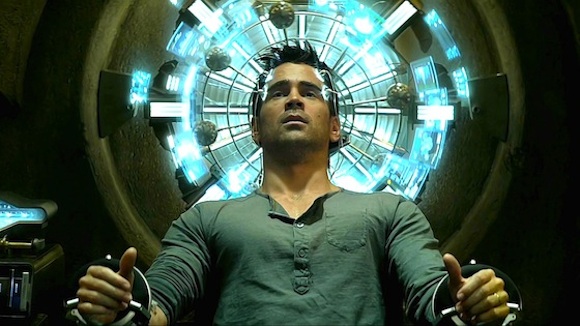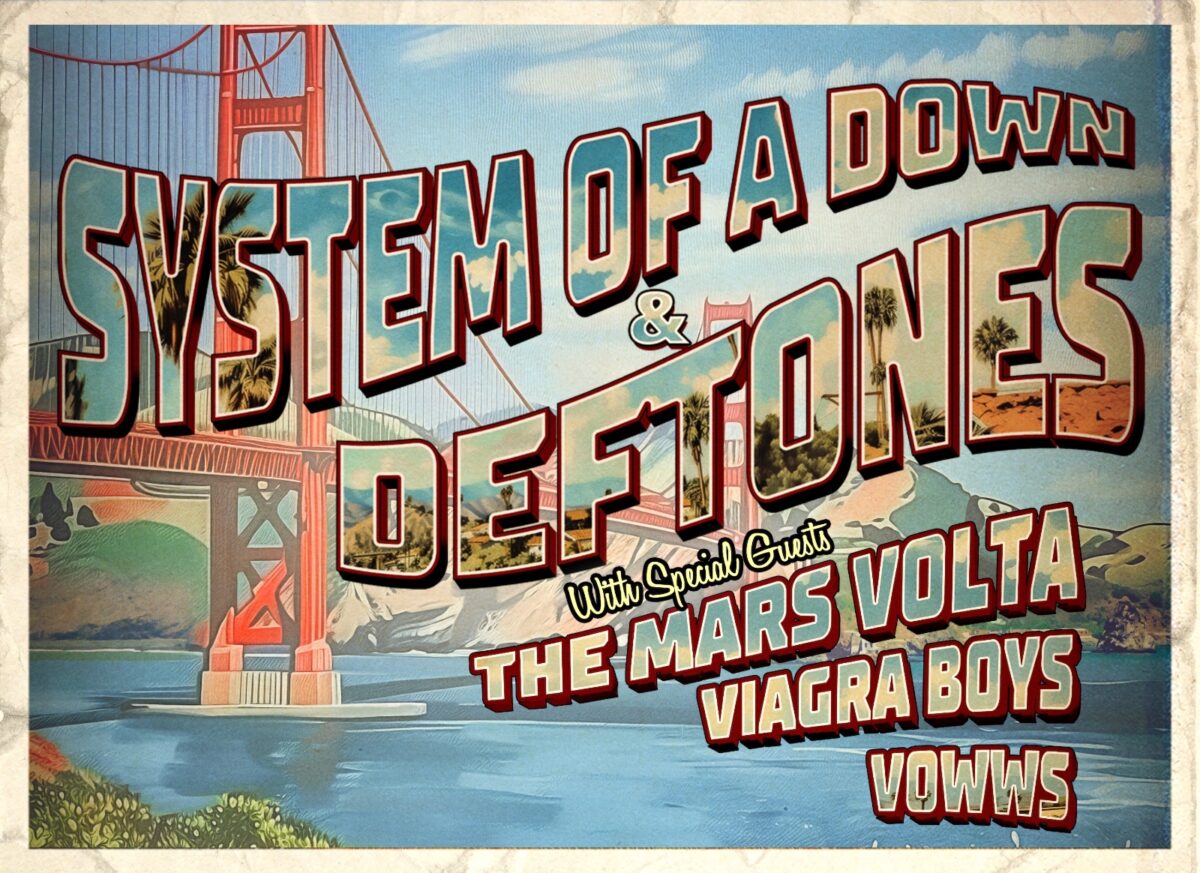Movie Review: Total Recall
Directed by Len Wiseman, the remake of Total Recall, Paul Verhoeven and Arnold Schwarzenegger’s sci-fi/actioner, arrives in movie theaters with more than the usual amount of pre-release baggage associated with remakes, reboots, sequels, or prequels produced by Hollywood studios.
A hue and cry broke out among the usual suspects on the Internet, each one objecting to the idea, let alone the reality, of someone, especially a lightly regarded director like Wiseman, directing a remake of a film with a small, but vocal, group of online supporters. With our without their support, Total Recall arrives this weekend and as blasphemous as it may sound to some (or many), it’s a marked improvement over the inexplicably well-regarded 1990 original.
Total Recall revolves around Douglas Quaid (Colin Farrell), an everyman/factory worker who dreams of becoming a superman/secret agent. Quaid has a beautiful, loving wife, Lori (Kate Beckinsale), and a job he doesn’t detest. He builds robots for the United Federation of Britain (UFB), a European nation-state that emerged from a decades long war that made all but the UFB and the Colony uninhabitable. Located on opposite sides of the world a gigantic elevator, the “Fall,” connects the UFB and the Colony, Quiad’s home.
Quaid takes the Fall every morning to work with his best friend, Harry (Bokeem Woodbine), and returns home every night to the cramped confines of the apartment he shares with Lori, a local security officer. Periodic bombings blamed on a resistance movement that objects to the UFB’s rule, keep Lori and Quaid apart, but Melina (Jessica Biel), a woman he’s never met, keeps entering his dream life.
Bored, restless and eager for simulated adventure, Quaid stops at Rekall, a memory-implant company that promises its clientele escape from their humdrum lives. Before the memory implant takes, UFB forces descend on Rekall, slaughtering almost everyone, forcing Quaid to go on the run. Lori proves her disloyalty in a scene that closely mirrors the original before Quaid discovers the partial truth about his true identity as a former undercover agent for the UFB’s chancellor, Cohaagen (Bryan Cranston). What starts as minor puzzle piece (Quaid discover his identity) quickly segues into practically non-stop action as Quaid hooks up with the real Melina and gets to live out his dream of becoming (and living as) a secret agent with a Messiah Complex.
Like the Verhoeven-Schwarzenegger original, Total Recall briefly toys with the idea that Quaid’s experiences aren’t “real” in an objective sense, but completely subjective, a subject writer Philip K. Dick, whose short story, “We Can Remember for You Wholesale,” provided the source material for the 1990 film, often explored in his short works and novels. Scenes play out almost identically, with characters with questionable loyalties attempting to convince Quaid that he’s suffering from a psychological breakdown. Total Recall, however, leaves little doubt about Quaid’s experiences or his identity, opting instead for the occasional callback to the original before segueing into the next CG-heavy action set piece.
Not surprisingly, action and spectacle, of course, take precedence over story and character development. A budget between $150-$200 million dictates multiple, extended set pieces, each one as or more elaborate than its predecessor, complex, layered cityscapes to give Total Recall that familiar dystopian feeling (e.g., Metropolis, Blade Runner, The Fifth Element, etc.), a script that relies not just on its well known predecessor, but other, easily recognizable literary and cinematic sources (e.g., Brave New World, 1984, I, Robot, etc.), and actors who can handle physically demanding roles.
The result only occasionally rises above mediocrity, but for moviegoers who may want a respite from The Dark Knight Rises‘ bleakness, it might just be enough.
Showtimes and Tickets









